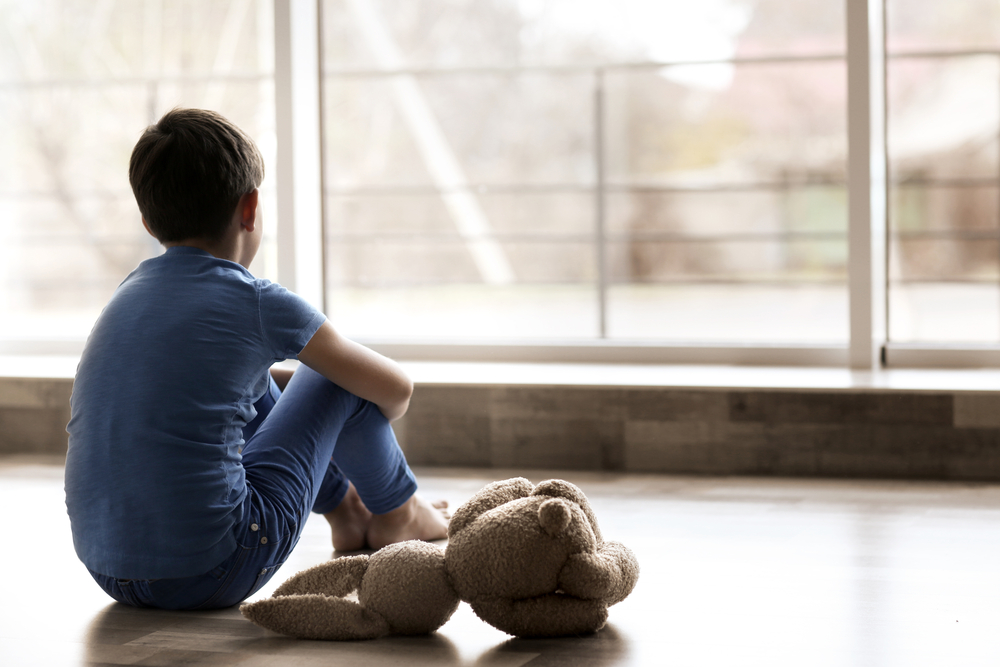Many people are concerned about the potential harms of social isolation during the Coronavirus outbreak, especially in our most vulnerable populations. With regard to children and youth, some have wondered how closing schools might stunt student growth. Others worry about how canceling sports might result in medical issues in the future. Unfortunately, these concerns are the least of our worries.
The present combination of overwhelming economic stress, extreme social isolation and limited control over outcomes creates a literal “perfect storm” that will produce cataclysmic increases of child abuse and neglect and other childhood traumas like domestic violence and parental substance abuse. The results will last generations. Just as we were starting to gain widespread awareness of the devastating impact of trauma in childhood, most communities are about to experience a rise in trauma even the most pessimistic child protective service worker could not have imagined just a few weeks ago.
Adult Stress Leads to Stress for Children
As researchers and child advocates have extolled for decades, the causes of child abuse and neglect include parental stress, social isolation, inadequate supports and limited access to resources. Each of these causal conditions has reached unprecedented and extraordinary levels as a result of the COVID-19 interventions. Parental stress is both ubiquitous and profound. In addition, many parents perceive a dramatic lack of control over the outcomes of the COVID-19 interventions — not the least of which is how long the economic and social restrictions will last. When we adults find ourselves in highly stressful contexts, our perception of how much control we have over the outcome directly impacts the severity of our stress response. When perceived control is low, stress is high. Compounding the problem is that healthy outlets for adult stress are limited or nonexistent, unhealthy alternatives like substance use are sought which seldom portends a good prognosis for the children under our care and supervision.
Social isolation exacerbates parental stress because the support of others – friends, co-parents, extended family, religious organizations and social services – is often the difference between effective stress management and more impulsive and often volatile behavioral responses. Inadequate resources abound because even fewer families than government officials saw this coming. Parents who have lost income, healthcare access, food sources, transportation options, and child care services are experiencing a tsunami of adverse events that even the most supported and resilient adult would find difficult to manage. The limited access to resources that are available to parents contributes further to the crushing weight of what the COVID-19 response has wrought. Schools and child care facilities are closed. Social services are being delivered remotely (if families have internet access). and most home-based services have been suspended.
Children Lose Contact with Their Advocates
This restricted access to services also eliminates a primary protector of children — being seen by other caring adults. If children are not seen in school or the community then child abuse and neglect go unseen as well. When child advocates do not get to homes to engage with and support families, the shadows in which abuse and neglect proliferate grow deeper and longer. It is not too late to prevent child maltreatment even under these dire conditions. Government authorities and child advocates can incorporate exceptions to certain social isolation restrictions so that supportive adults have physical access to vulnerable families and can support them. In addition, grandparents, aunts, uncles, neighbors, teachers, and pediatricians can discover new ways to reach out to help families reduce stressors.
We Must Support our Parents
We can make calls to parents to “be with them” and encourage them to notice, name and express their fears, frustration, anger, and depression and help them problem-solve. Just like checking on the elders in our community, it is more important than ever to check on the children. Applying our ingenuity and “can do” spirit to connecting with families during this crisis, we can mitigate the unseen crisis impacting our nation’s children. Read “Help Calm the Storm” to see specific steps you can take to protect the children in your family and community.
Perhaps most important, we can start now to prepare as communities for the extreme treatment needs that hundreds and likely thousands of children and youth will bring us once this storm has passed. If we start preparing now we can respond with the skill, knowledge and human connection required to help our children heal.
For more information about how your organization can support children and youth through the Coronavirus outbreak, contact Frank Kros.


Thanks for this important article
Thank you for this timely post.
Katherine O’Keeffe -Wisconsin